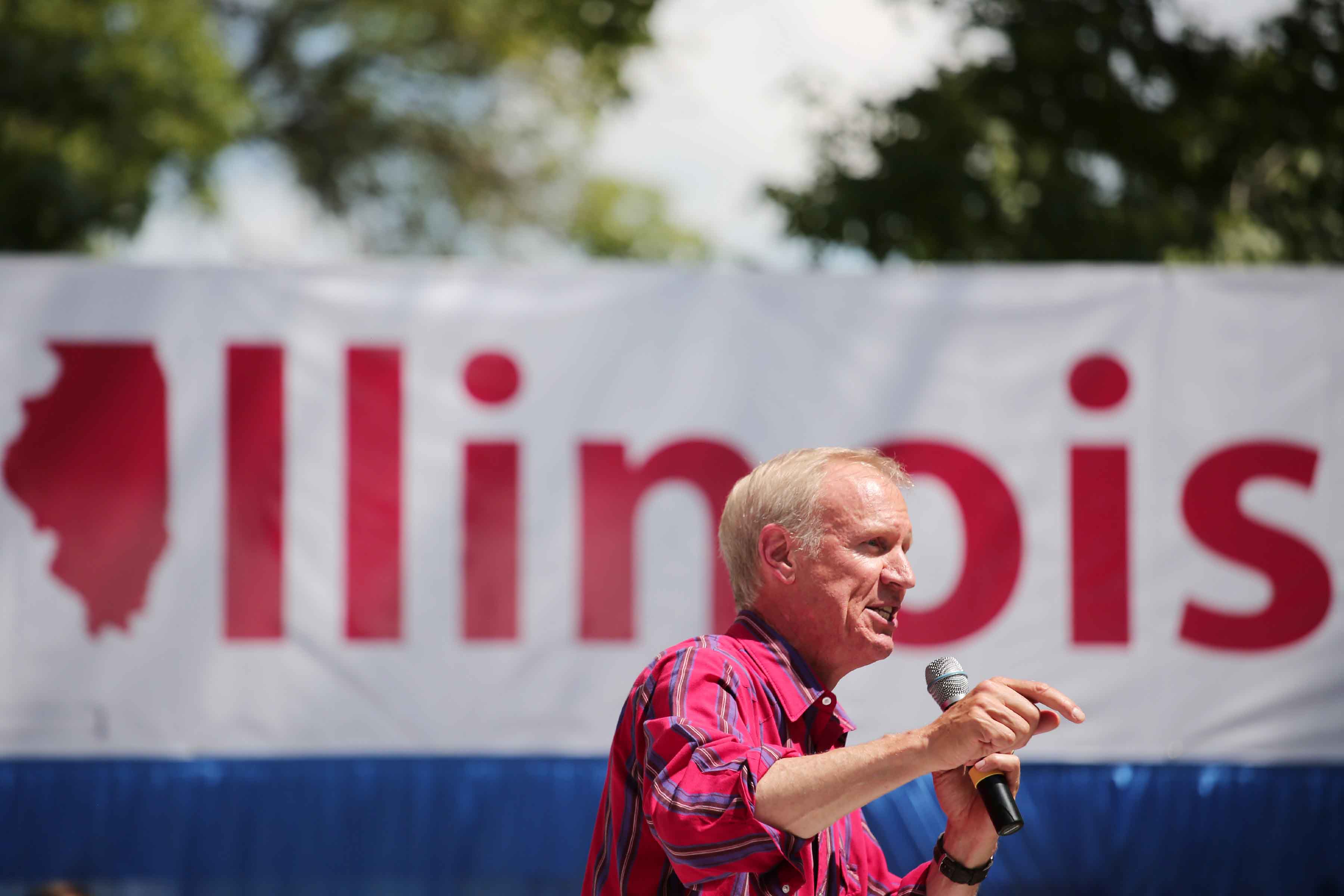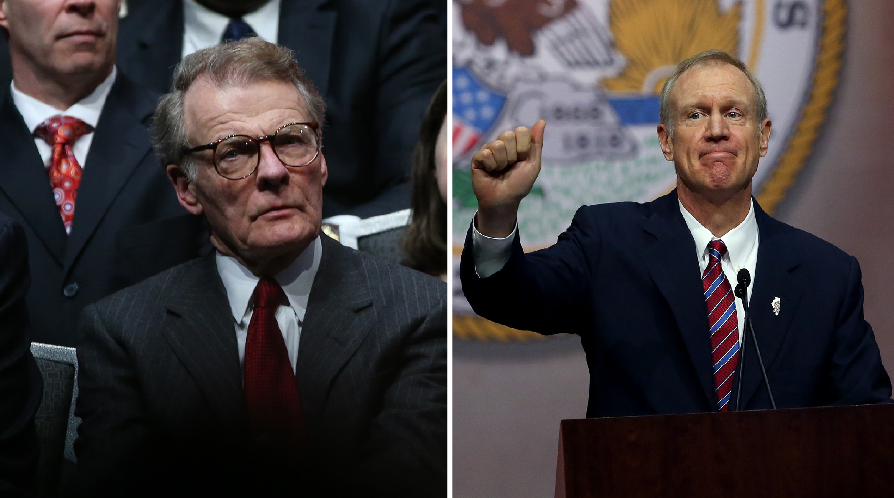Illinois governor, house speaker to meet after days of post-election posturing
November 15, 2016
A week after their respective political operations wrapped up tens of millions of dollars in ads vilifying the other guy, Republican Gov. Bruce Rauner and Democratic House Speaker Michael Madigan will be in the same room to resume discussions on Illinois’ economic future.
The Tuesday morning Capitol huddle will take place after days of political posturing on both sides. Coming out of last week’s election and looking toward his own re-election in 2018, Rauner called for a meeting with the four legislative leaders, and his surrogates quickly put out news releases in support of the request.
Not that numerous closed-door gatherings have produced much during the long budget impasse beyond a stopgap funding agreement that expires at year’s end. But asking for a meeting allowed Rauner to look like he’s attempting to get something done as state’s chief executive.
Advertisement
Madigan, meanwhile, didn’t respond until Sunday evening, and his spokesman didn’t offer much of an excuse for declining beyond a generic scheduling conflict. That prompted Democratic Senate President John Cullerton to pull out, observing that it wouldn’t be a very productive meeting without everyone in the fold.
And so Rauner went ahead and met privately Monday with Republican legislative leaders, with Democrats’ refusal to participate playing into the governor’s argument that they’re not bargaining in good faith.

By afternoon, however, Madigan moved to correct the optics. The speaker said he’d be able to huddle Tuesday, with his office noting that it was Madigan who decided what time the meeting would occur.
So far, the post-election atmosphere is a lot like it was before voters weighed in last week, awarding a net gain of four House seats and two Senate seats to Republicans. Rauner and his deep-pocketed allies covered much of the cost for the GOP campaigns, while Madigan’s Democrats were backed by money from labor unions and trial lawyers.
After all that money was spent, the sides may now be more entrenched, beholden to the political agendas of those who helped them keep their jobs.
Meanwhile, the state’s historic budget stalemate has been going on nearly 18 months, sending debt soaring and threatening everything from universities to meal plans for the elderly. The two sides agreed to a stopgap spending plan in June, which had the dual benefit of letting lawmakers hit the campaign trail while keeping programs afloat through the end of the year.
But that’s set to expire in six weeks, and there’s little indication either side is prepared to back off of the positions that’s driven the divide. Rauner still is pushing for economic reforms as part of a larger deal, saying budget cuts and a tax increase alone won’t put the state on a solid long-term financial footing.
Advertisement*
While Rauner’s wish list has changed over time, the governor frequently has referenced limiting payouts for workers hurt on the job and curbing collective bargaining rights.
Following Tuesday’s election, Madigan reiterated that Democrats “will continue to protect the middle class.”
“Illinois residents want strong schools, funding for domestic violence shelters and veterans’ homes, and a strong middle class with good wages,” Madigan said last week. “I hope Republicans will finally join us to protect these priorities and help deliver the services families are counting on.”
Republicans on Monday countered that it’s time for Democrats to put forth their own plan, saying there have been several attempts to come to an agreement through working groups only to be stymied by leadership. They rejected the notion that Madigan may be less willing to cut a deal after he was the subject of repeated campaign attacks.
“He’s got a job to do on behalf of the people of Illinois,” said Senate Republican leader Christine Radogno, of Lemont. “That’s insane to think that because he lost seats, he shouldn’t have to participate. That’s an absolute dereliction of duty.”
The back-and-forth comes as lawmakers return to Springfield this week to deal with legislation the governor rejected or attempted to re-write through vetoes. House GOP leader Jim Durkin, of Western Springs, said that work should be put off until a budget agreement is reached, though the Senate planned to take up at least one major veto on Tuesday of a measure aimed at making voter registration automatic in Illinois.
The legislation received strong bipartisan support, passing 86-30 in the House and 50-7 in the Senate.
Democrats view Tuesday’s planned override as a test of Rauner’s strength and whether he will be able to make the veto stick despite previous support from Republicans.
___
(c) 2016 the Chicago Tribune
Visit the Chicago Tribune at www.chicagotribune.com
Distributed by Tribune Content Agency, LLC.
Advertisement









